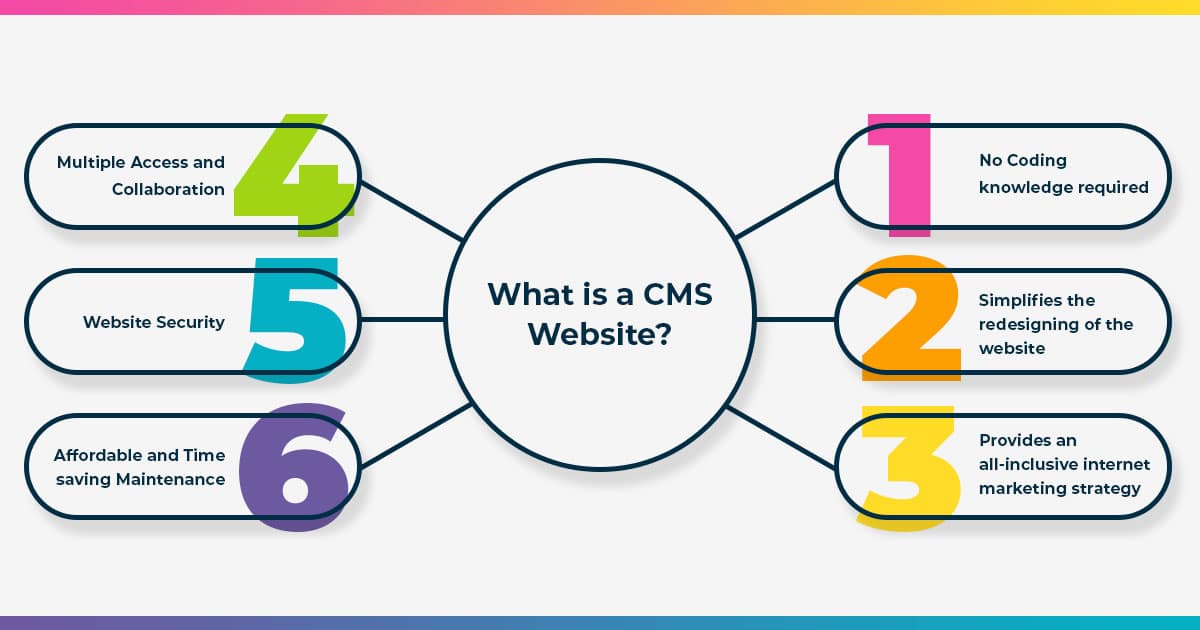
Content Management System (CMS) development involves creating software systems that enable users to create, manage, and organize digital content on websites, blogs, and other online platforms. A CMS simplifies content creation, editing, and publication, making it accessible to users with little technical knowledge. Here are the key aspects and considerations involved in CMS development:
1. **Requirements Analysis**:
- Identify the specific needs and goals of the content management system, including the type of content it will manage (text, images, videos, etc.).
- Determine the target audience, as user requirements may vary.
2. **Platform Selection**:
- Choose the technology stack for CMS development. Common choices include WordPress, Drupal, Joomla, and custom-built solutions using programming languages like PHP, Python, Ruby, or .NET.
3. **Database Design**:
- Define the database schema to store content, user data, and other metadata.
- Select an appropriate database management system (DBMS) such as MySQL, PostgreSQL, or MongoDB.
4. **User Management**:
- Implement user authentication and authorization mechanisms.
- Define user roles and access levels (admin, editor, contributor, etc.).
- Ensure security features, including password encryption and protection against common web vulnerabilities.
5. **Content Creation and Editing**:
- Develop a user-friendly interface for content creation and editing. WYSIWYG (What You See Is What You Get) editors are commonly used to simplify the process.
- Include features for formatting, multimedia embedding, and scheduling content publication.
6. **Content Organization**:
- Create a logical structure for organizing content, such as categories, tags, and taxonomies.
- Implement a search function for easy content retrieval.
7. **Media Management**:
- Allow users to upload and manage multimedia content, including images, videos, and documents.
- Provide features for resizing, cropping, and optimizing media files.
8. **SEO Optimization**:
- Implement SEO-friendly URLs, metadata fields (titles, descriptions, alt text), and XML sitemaps.
- Ensure proper handling of canonical URLs and redirects.
9. **Content Versioning**:
- Enable content version control to track changes and revisions.
- Allow for content rollback to previous versions if necessary.
10. **Content Workflow**:
- Implement content approval workflows, where content can be submitted, reviewed, and approved by designated users before publication.
11. **Multilingual Support**:
- If the CMS targets a global audience, include features for multilingual content creation and localization.
12. **Performance Optimization**:
- Optimize the CMS for performance by caching content and database queries.
- Implement efficient code and database query optimization.
13. **Security**:
- Implement security measures to protect the CMS from common web vulnerabilities like SQL injection and cross-site scripting (XSS).
- Regularly update the CMS to patch security vulnerabilities.
14. **Backup and Recovery**:
- Develop backup and recovery mechanisms to safeguard content and configurations.
- Implement automated backups and recovery options.
15. **Scalability**:
- Design the CMS to handle growth and increased traffic. Ensure it can scale horizontally by adding more servers or resources.
16. **User Support and Documentation**:
- Provide user support and comprehensive documentation to assist users and administrators in effectively using the CMS.
17. **Testing and Quality Assurance**:
- Rigorously test the CMS to ensure functionality, security, and performance.
- Conduct user testing to gather feedback and identify usability issues.
18. **Deployment and Hosting**:
- Deploy the CMS to web servers or hosting platforms.
- Optimize the server environment for the CMS to run efficiently.
19. **Maintenance and Updates**:
- Regularly maintain the CMS, apply security patches, and update plugins or extensions as needed.
- Monitor server performance and address issues promptly.
20. **User Training**:
- Offer training sessions or resources to educate users and administrators on CMS usage and best practices.